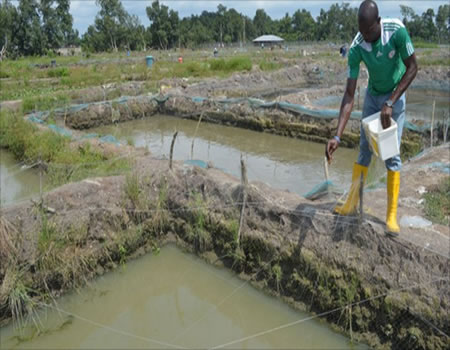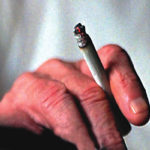The GES scheme was launched in 2012 with the purpose of easing farmers’ access to quality farm inputs.
Mr Anthony Ashagye, the National President of the federation, told Journalists in Abuja that boosting the scheme would help the association to improve production of fish.
Ashagye was reacting to the 2017 Agricultural Wet Season Performance Survey Report released by the National Agricultural Extension and Research Liaison Services (NAERLS), which reflected the low output of fish production.
He said the low output recorded in aquaculture and artisanal fish production in 2017 was as a result of the high cost of fish feeds, poor market for fish and non-access to credit facilities.
The national president lamented that fishermen did not receive any input from the government under the GES scheme in 2017.
According to him, this contributed to the drop in fish production across the country.
He noted that the scheme which usually enabled fishermen to get subsidised input from the Federal Government would help them boost production.
“Our inland waters are still rich. If we can harness and develop them, we will benefit. In the area of aquaculture, the major problem is the cost of the fish feed which is almost 70 per cent of the cost of fish production.
“As government has been subsidising in other agriculture sectors, we have been approaching them through the Growth Enhancement Scheme (GES) to assist us so as to reduce the cost of fishery.
“The government did not give us fishing inputs in 2017, so we are expecting government to improve on the GES programme by supplying adequate good juveniles and fingerlings, through GES scheme this year.
“The way other countries deal and work with fishermen is different from what is happening in this country and this is affecting production of fish,’’ he disclosed.
The 2017 agriculture performance report recorded serious decrease in aquaculture and artisanal fish production in some states, compared to the performance in 2016.
The report showed that Adamawa produced 10,000 tonnes of fish in 2017, as against 20,000 tonnes produced in 2016; while fish production in Bauchi State and Federal Capital Territory (FCT) recorded a decrease of 21.62 per cent and 71 per cent in 2017.
Kogi produced 20,955 tonnes of fish in 2017, as against 271,315.11 tonnes produced in 2016, while Akwa Ibom recorded a 46 per cent decrease, producing 96,590 tonnes of fish, as against 178,871 tonnes produced in 2016.






